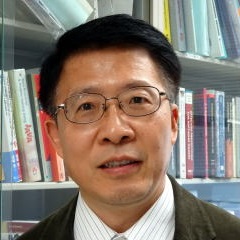Pair programming is one of the promising techniques advocated in agile development paradigm, but it tends to be more costly than one person-based programming and to lack a rigorous principle for governing the cooperation of the two programmers. In our recent work on Agile Formal Engineering Methods, we put forward a novel technique called Software Construction Monitoring and Predicting (SCMP) to study an intelligent and automatic approach to human-machine pair programming (HMPP). Its aim is to automatically, dynamically monitor the process of software construction for fault detection and to predict the possible future contents of the software towards its error- free completion based on existing programming experiences and knowledge. This research field is still in its beginning and there are many challenging issues to be addressed.
In this talk, I will first discuss the theoretical foundation and frameworks for Software Construction Monitoring and Predicting (SCMP) for HMPP. I will then discuss with examples how it can be applied to support specification construction and program construction, respectively. Finally, I will talk about some challenging issues to be addressed in the future.

IEEE Fellow, BCS Fellow
Associate Editor of IEEE Transactions on Reliability
School of Informatics and Data Science
Hiroshima University, Japan
Shaoying Liu is a Professor of Software Engineering at Hiroshima University, Japan, IEEE Fellow, and BCS Fellow. He received the Ph.D in Computer Science from the University of Manchester, U.K in 1992. His research interests include Formal Engineering Methods for Software Development, Specification Verification and Validation, Specification-based Program Inspection, Automatic Specification-based Testing, Testing-Based Formal Verification, and Intelligent Software Engineering Environments. He has published a book entitled "Formal Engineering for Industrial Software Development" with Springer-Verlag, 12 edited conference proceedings, and over 200 academic papers in refereed journals and international conferences. He proposed to use the terminology of "Formal Engineering Methods" in 1997, and has established Formal Engineering Methods as a research area based on his extensive research on the SOFL (Structured Object-Oriented Formal Language) method since 1989, and the development of ICFEM conference series since 1997. In recent years, he has served as the General Chair of ICFEM 2017, the Chair of ICECCS Steering Committee, and a PC member for numerous international conferences. He is an Associate Editor for IEEE Transactions on Reliability and a member of JSSST and IPSJ.